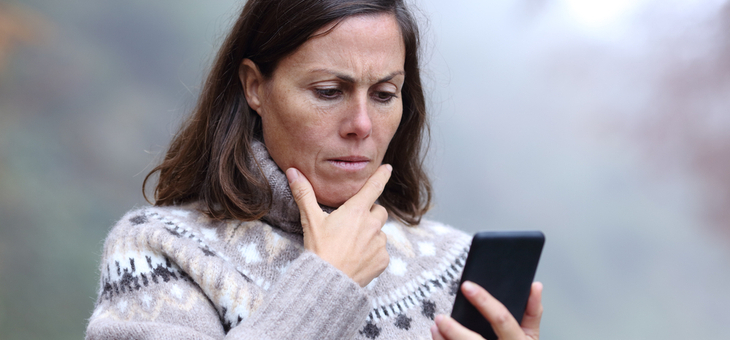Australians don’t trust the media.
The ABC Australia Talks survey of 60,000 citizens found more of us rated “misinformation” as a threat to the nation than any other issue in the survey – higher than climate change or how much money we’ll have in retirement.
Only 50 per cent of those interviewed trust mainstream journalists and 79 per cent say it is becoming harder to know which sources of information to trust.
In August 2020, a Roy Morgan survey announced that the internet had overtaken TV as Australia’s main source of news.
“Over 12.7 million Australians (60.8 per cent) now say the internet is a main source of news, up 1.4 million since 2018, including nearly 7.9 million Australians (37.7 per cent) specifically nominating social media.”
TV remained the most trusted source of news at 33.4 per cent, but down 4.9 per cent on 2018), ahead of the internet on 25.7 per cent (which was up 3.6 per cent).
Social media was the least trusted news source. But given the fights over ‘fake news’ during the coronavirus, its likely many more people are influenced by news on social media than admit to trusting it.
Read more: Research shows people trust computers more than humans
In February 2021, Mumbrella reported that no media source was trusted for news and information by Australians, with traditional media experiencing a 3 per cent decline in trust compared with the previous year.
Mumbrella took its data from the Edelman’s 2021 Trust Barometer report, which classifies media sources as ‘trusted’ when they score 60 points or higher “based on the average of respondents rating them on a scale of how much they would trust them for news and information”.
Traditional media dipped below 60 in 2019 and is now at 53, just ahead of search engines at 51. Owned media was 38 and social media 32.
“Search engines also experienced a decline from last year, dropping one point, however owned media was up, and social media had a nine-point jump in the trust Australians hold in it as a news source.”
The Trust Barometer showed that Australians believe local news organisations are biased, with 68 per cent agreeing that “most news organisations are more concerned with supporting an ideology or political position than with informing the public” and 64 per cent saying journalists and reporters are “purposely trying to mislead people by saying things they know are false or gross exaggerations”.
Read more: Brands we trust the most – and those that are on the nose
So, Australians, like many people in Western democracies, trust no media.
Why?
Trust in institutions, including the media has been declining since the 1970s.
At first, this was a healthy corrective bringing necessary scrutiny and scepticism.
But the corporatisation of the media reduced its local connections and employment levels; online platforms reduced its advertising reach and profitability; and the ubiquity of video and instant messaging emphasised personality-based reporting rather than analysis. The distinction between news and other information was diluted by people out for ‘clicks’ who had no journalistic training.
Sociologist and political economist William Davies believes “the appearance of digital platforms, smartphones and the ubiquitous surveillance they enable has ushered in a new public mood that is instinctively suspicious of anyone claiming to describe reality in a fair and objective fashion”.
“The single biggest change in our public sphere is that we now have an unimaginable excess of news and content, where once we had scarcity,” he wrote for The Guardian.
He says the crisis of democracy and journalism are the same: “Individuals are increasingly suspicious of the ‘official’ stories they are being told and expect to witness things for themselves.”
Read more: Banks we trust the most – and the least
Rachel Moran, who works at the University of Washington’s Center for an Informed Public, told courthousenews.com that the significance of social media cannot be overstated because they are “optimised for attention rather than quality”.
“And if over time you inadvertently only hear things from one point of view, suddenly hearing something different can make you feel suspicious.”
However, journalism professor Michael Schudson, speaking of the US, says the death of trust goes beyond the media.
“What happened recently (I think) is that many people could see that an elite few were getting very, very rich while they themselves were falling behind,” Prof. Schudson said. “Government was producing neither the inspiration nor the concrete policies to make anyone more trusting.”
Where do you get your news? Do you trust traditional media sources? Do you get your news from social media?
If you enjoy our content, don’t keep it to yourself. Share our free eNews with your friends and encourage them to sign up.

